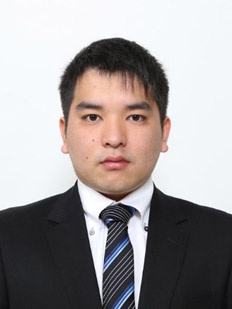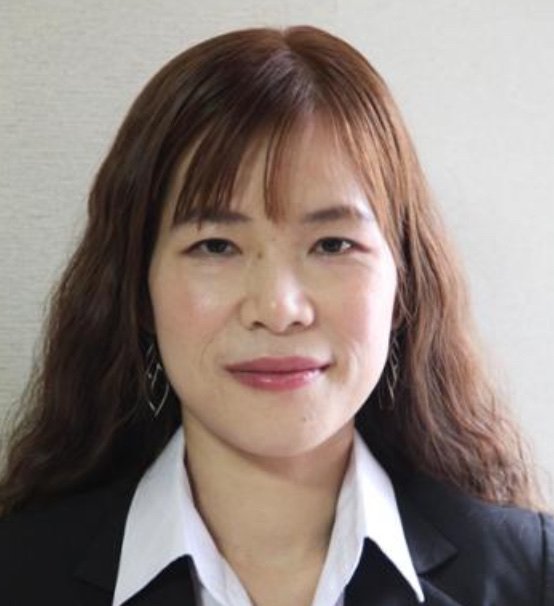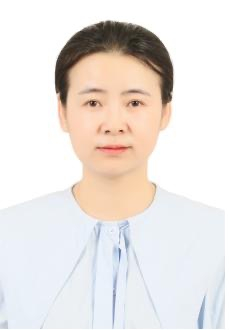Department of Core Informatics
Faculty of Department of Core Informatics
Intelligent Informatics
Professor HONDA Katsuhiro
Research theme
Soft interface between human and information
While technologies for collecting and accumulating a wide variety of data have been built, the development of technologies for analyzing the data and utilizing them for decision-making is insufficient. Data Mining is a technique for finding useful knowledge from data. We aim to create a human-friendly information society through research and development of systems that support user decision-making by making full use of multivariate data analysis and soft computing technology, including recommendation systems based on historical data on the Internet.
Research keywords
Soft computing
Data mining
Fuzzy theory
Laboratory Website
https://www.omu.ac.jp/i/ci/labs/hi/
https://www.omu.ac.jp/i/ci/profs/honda/
Professor KISE Koichi
Research theme
Intelligence augmentation through intelligent media processing
While the goal of Artificial Intelligence (AI) is to create machines that can replace humans, the goal of Intelligence Augmentation (IA) is to amplify human capabilities with the help of machines. I am challenging the task of realizing intelligence augmentation through sensing human behavior and generating dynamic and intelligent media based on the results of sensing. In particular, I have recently been working on the analysis of human learning and the transfer of human experience.
Research keywords
Intelligence augmentation
Artificial intelligence
Media processing
Human sensing
Laboratory website
https://www.imlab.jp/index-e.html
https://www.imlab.jp/~kise/
Professor MORI Naoki
Research theme
Artificial intelligence for understanding human creation
After a long evolution, humans got intelligence and created lots of things. We try to make a computer system that understands and generates such people's creations! We use the latest technologies in image recognition and natural language processing based on artificial intelligence, machine learning, and evolutionary calculation. Our research topics are all exciting: manga, novels, picture books, photographs, starry sky, music, mahjong, and games!
Research keywords
Evolutionary algorithm
Machine learning
Artificial intelligence
Creation
Laboratory website
Professor NOJIMA Yusuke
Research theme
Development of evolutionary multiobjective optimization methods and application to data mining
Real-world optimization problems often have multiple objectives to be optimized simultaneously. There are trade-offs between the objectives, and there is no single optimal solution. For such problems, we are developing evolutionary multiobjective optimization methods that can efficiently search for multiple Pareto optimal solutions and provide them to users. We apply the methods to knowledge acquisition by considering the trade-off between accuracy and explainability.
Research keywords
Computational intelligence
Evolutionary computation
Fuzzy systems
Data mining
Laboratory website
https://ci-labo-omu.github.io
https://yusuke-nojima.github.io/
Professor UNO Yushi
Research theme
Discrete Structures and Algorithms
The center of recent ICT, such as search engines, block-chain, and so on, that supports the infrastructure of recent society, consists of computer programs, and "algorithms" are principles of how they work. Theory of algorithms is a new kind of mathematics that is required in computer science, and we study those theories for designing and analyzing correct and efficient algorithms and discrete structures for which such algorithms work.
We also model practical problems that have discrete structures, and implement computer programs based on algorithms that we develop to solve such problems.
Research keywords
Design and analysis of algorithms
Discrete structures
Network analysis
Computational complexity
Professor YOSHIOKA Michifumi
Research theme
Intelligent signal processing
Research topics are analysis of still images, self-position estimation and acquisition of environmental information from movies based on intelligent signal processing methods such as deep learning. Efficient model design that reduces calculation costs while maintaining accuracy are also interesting.
Research keywords
Signal processing
Deep learning
3D data acquisition
Professor IWAMURA Masakazu
Research theme
Pattern recognition technology and its application to support for the visually impaired
Suppose you are asked, "What's in this picture?" It may be easy for you, a human, to answer, but difficult for a computer. We research so that computers can do what humans can do, focusing on image-related topics. As a way to use computers that have become smarter, we focus on assisting the visually impaired. By making the "eyes" of computers the "eyes" of the visually impaired, we aim to realize a world in which the visually impaired can "see" their surroundings.
Research keywords
Character recognition
Object recognition
Deep learning
Visually impaired assistance
Laboratory website
https://www.cs.osakafu-u.ac.jp/index-e.html
https://www.m.cs.osakafu-u.ac.jp/~masa/
Associate Professor HAYASHI Toshiharu
Research theme
Data assimilation, statistical learning
Simulations are based on pseudo-models and often do not accurately reflect the real world. In inference based on data, it is possible to estimate only a few parameters. Applying data assimilation, the accuracy of the simulation can be improved, and it is possible to make higher-dimensional inferences. In addition to data assimilation, we are exploring the statistical aspects of machine learning methods.
Research keywords
Data analysis
Mathematical finance
Statistical inference in stochastic processes
Associate Professor HOHJO Hitoshi
Research theme
Research on the value of information in social systems
We analyze various social problems and phenomena using game theory, stochastic models and simulations. Our research explores the value of information and its consequent impact on behavioral strategies.
We are working on research with the aim of making support for deriving the best decisions among multi-agents in social systems and offer of mechanisms to improve social efficiency.
Research keywords
Game theory
Social behavior
Information propagation
Decision-making support
Associate Professor INOUE Katsufumi
Research theme
Image sensing
Image sensing techniques have been focused on various fields such as automatic driving and surveillance systems, games, etc. The advancement of these techniques has contributed greatly to the construction of a safe and secure society. To realize such society, in our laboratory, we analyze images and videos obtained from cameras as well as information obtained from various sensors by using signal processing and deep learning technologies.
Research keywords
Pattern recognition
Computer vision
Signal processing
Multimodal analysis
Associate Professor IWATA Motoi
Research theme
Learning support based on each learner's ability and preference
There are many ways to study, but finding the right one for you is not always easy. We are developing methods to achieve effective learning by customizing texts, videos, music, etc., for study based on the learner's vocabulary and preferences. I am also working on a data hiding method that can handle video images like QR codes, and image processing and image generation for cartoon images.
Research keywords
Intelligent media processing
Learning support
Comic engineering
Data hiding
Laboratory website
Associate Professor UBUKATA Seiki
Research theme
Flexible data analysis considering ambiguity and uncertainty
In an advanced information society, it is necessary to create value through analyses of big data, and it is essential to classify and summarize data automatically. The ambiguity and uncertainty, such as that objects cannot be clearly classified by 0 or 1, are inherent in data. By utilizing soft computing techniques, which aim at the realization of the flexible information processing ability of humans, we propose new analytical methods that can deal with the ambiguity and uncertainty inherent in data and aim at contributing to society.
Research keywords
Soft computing
Data mining
Rough set theory
Laboratory website
https://www.omu.ac.jp/i/ci/labs/hi/
https://www.omu.ac.jp/i/ci/profs/ubukata/
Associate Professor MASUYAMA Naoki
Research theme
Clustering algorithms capable of continual learning
With the growth of IoT technology, it has become easy to continually obtain a wide variety of data from numerous devices. In this laboratory, we are mainly engaged in theoretical research on clustering algorithms that can continually and adaptively extract useful information and its relationships. In addition, we are also working on real-world applications by applying clustering algorithms.
Research keywords
Continual learning
Clustering
Knowledge extraction
Unsupervised learning
Laboratory website
https://ci-labo-omu.github.io
https://masuyama-lab.github.io/
Associate Professor UTSUMI Yuzuko
Research theme
Plant image processing
Yuzuko has an interest in image-based plant phenotyping. She is working on measuring plant traits using computer vision and pattern recognition techniques to clarify the correspondence between gene information and plant traits. She is also developing an agricultural work support system by applying plant measuring.
Research keywords
Computer vision
Pattern recognition
Image processing
Plant phenotyping
Laboratory website
http://www.m.cs.osakafu-u.ac.jp/index-e.html
https://www.m.cs.osakafu-u.ac.jp/~yuzuko/index.html
Assistant Professor KIYA Hironori
Research theme
Games and computations
In combinatorial games such as Chess and Go, it is known that either the first or the second player can always win, but a game's "winner" itself is generally unknown. Thus, a natural interest in a combinatorial game is to decide which is the "winner" in a position. The "winner" of a game is sometimes efficiently computable, which is quite rare. For example, in Go and Chess, the computation of the winner belongs to a computational class EXPTIME-complete, in which efficient computation is believed not to exist. We are interested in which is the "winner" of a game and whether the "winner" of a game is efficiently computable.
Research keywords
Combinatorial game theory
Algorithmic engineering
Imperfect information game
Algorithmic game theory
System Informatics
Professor ATA Shingo
Research theme
Creation of valuable services and applications over programmable platforms
Our laboratory focuses on the creation of various services over programmable platforms and R&D on its underlying technologies. Toward a smart society through ICT, it is important to develop an information platform which is capable of composing various functions freely and dynamically. We are designing a new platform which can control, deploy, and collaborate with computing resources, networking, and variety of data exchanged. Our aim is also its application to create practical services in the university.
Research keywords
Service platform
Programmability
Network infrastructure
Network operations and management
Laboratory website
Professor CAI Kai
Research theme
Cyber-physical control of multi-agent systems, with applications in robotic networks
Our research focuses on mathematical modeling, control design, learning and optimization of large complex systems composed of interacting agents with discrete, continuous, or hybrid dynamics. Collaborating with world-leading universities and scientists, our work is being widely applied in autonomous robots, self-driving vehicles, mobility networks, logistic automation, and smart cities.
Research keywords
Control theory
Cyber-physical systems
Multi-agent systems
Robotic networks
Laboratory website
Professor FUJIMOTO Noriyuki
Research theme
High performance computing
We are studying parallel programming for parallel computers that can perform multiple operations simultaneously. Most computers today, from smartphones to supercomputers, as well as PCs, are parallel computers. The number of operations that can be executed simultaneously tends to increase rapidly. In order to get higher performance out of them, parallel programming that explicitly specifies the simultaneous execution of multiple operations is necessary, rather than sequential programming that only specifies one operation at a time.
Research keywords
Parallel programming
Accelerator
GPU computing
Discrete optimization
Professor NAKANO Tadashi
Research theme
Molecular communication: a new information and communication technology paradigm
We are interested in molecular communication – a new information and communication technology paradigm. Unlike current electromagnetism-based communication, molecular communication uses chemical signals or molecules as the carrier of information. Molecular communication allows a group of bio-nanomachines to communicate and cooperate. Potential applications of molecular communication include creating an artificial information network inside our body.
Research keywords
Information network
Molecular communication
Bio-inspired network
Life science
Laboratory website
Professor OHNO Shuichi
Research theme
Analysis and applications of data indexed in time order
A time series is a series of data points indexed in time order. Time series arises not only in informatics and engineering but also in various fields. For example, a series of economic data like foreign exchange fluctuations is a time series. We are making research on time series to extract important information and to predict future values of some phenomena. We are constructing models from time series, using machine learning. We are also developing signal processing technologies for future advanced information communications.
Research keywords
Time series
Signal processing
Machine learning
Communication
Professor TODE Hideki
Research theme
Enabling smart, fast, massive, and secure networking
We are working on the realization of network mechanisms and controls that can provide ultra-high-speed, high-capacity, and low-latency information communication as well as smart and secure services as future networks. Our research is directly related to optical networks, wireless networks, network security, IoT and sensor networks, and edge computing, etc.
Research keywords
Intelligent networking
Network quality control
Content delivery system
Broadband networking
Secure networking
Laboratory website
Associate Professor FUJIMOTO Manato
Research theme
Ubiquitous systems based on network and IoT technologies
Our laboratory is carrying out research on ubiquitous systems based on network and IoT technologies. Especially, we are targeting various fields toward making the our world "Hyper(or super)-Smart" by a cyber-physical system (CPS) that highly links the real world and cyberspace. In our laboratory, you will go through a parallel research experience across multiple technical areas in information engineering, from hardware to software, from communication networks to machine learning.
Research keywords
Ubiquitous
IoT (internet of things)
Wireless communication
Sensing
Laboratory website
Associate Professor TANIGAWA Yosuke
Research theme
Creation of new capabilities and value of wireless networks
Not only short-distance, high-speed wireless networks such as Wi-Fi but also medium-low speed, long-distance ones like TVWS-WLAN, Wi-Fi HaLow, and LPWA have been developed. On the other hand, wireless networks are expected to be leveraged in new fields such as medical, manufacturing, and agriculture. In order to achieve performances required in each field, we aim to realize a wireless network that creates new capabilities and value through adaptive cooperation among different types of wireless networks as well as the refinement of each elemental technology and network.
Research keywords
Intelligent networking
Network control
IoT (internet of things)
Wireless networks
Laboratory website
Associate Professor TRAN Thi Hong
Research theme
A research on software & hardware platform for decentralized blockchain system
This study focuses on two main research themes. The first is the development of decentralized blockchain applications for Society 5.0. For example, development of smart healthcare systems, industrial blockchain ecosystems for self-driving cars, anti-counterfeit drug management systems, etc. The second is the design of ultra-low power high processing rate hardware architectures for securing Blockchain networks.
Research keywords
Blockchain
Decentralized application
Encryption
Super smart society
Lecturer KATSUMA Ryo
Research theme
Research on advanced services using mobile devices
In recent years, mobile devices such as smartphones, smart watches, and wearable computers have become widespread. Many of them are designed to be able to sense a variety of environmental information such as images, sounds, and accelerations, as well as to enable wireless communication. I am researching advanced services by using these sensing and communication functions. In detail, it covers several issues such as power saving, sports support, traffic safety, and brand-new entertainment suggestions.
Research keywords
Mobile computing
Sensing
Advanced services
Ad-hoc networks
Lecturer UENO Atsushi
Research theme
Development of systems and methods to realize human intellectual functions
We are studying simultaneous learning of state representation and behavior that imitates human behavior learning. In addition, as natural language processing of "miscellaneous sentences", we are studying information extraction from SNS or product reviews, and artificial intelligence for the “Werewolf game”.
Research keywords
State representation
Reinforcement learning
Natural language processing
Deep learning
Lecturer YINGYING Liu
Research theme
Data-Driven Supervisor Control Theory for Multi-Agent Systems with Applications in Industrial and Agricultural Fields
Our research focuses on data processing, mathematical modeling, supervisor control, and optimization in large-scale multi-agent complex systems. The objective is to develop automated control systems that assist user decision-making through system data analysis and extraction, with applications in industrial automation and smart agriculture.
Research keywords
Cyber-Physical Systems
Data-Driven
Supervisor Control Theory


























